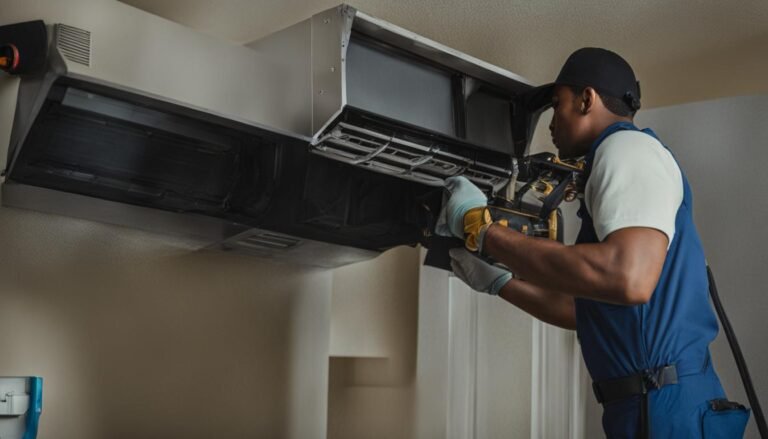Mastering the Art: Navigating the Challenges of Seasonal Fluctuations in Hospitality
Welcome to our in-depth exploration of the challenges faced by the hospitality industry when it comes to seasonal fluctuations. In this article, we will delve into the intricacies of supply chain management, the importance of strategic coordination, and the impact of fluctuating demand on businesses in the hospitality sector. Join us on this journey as we uncover valuable insights and strategies for successfully navigating these challenges, ensuring operational efficiency, and maintaining customer satisfaction.
Key Takeaways:
- Supply chain management plays a pivotal role in the hospitality industry, but it comes with challenges like fluctuating demand and managing relationships with multiple suppliers.
- Understanding and effectively managing these challenges is crucial for businesses to navigate seasonal fluctuations in the industry.
- Strategic coordination, customer satisfaction, and operational efficiency are key benefits of effective supply chain management in hospitality.
- Fluctuating demand is influenced by factors such as seasonality, local events, and changing consumer preferences, and hotels must develop proactive strategies to cope with it.
- Inventory management challenges include managing perishable goods, handling non-perishable items, and dealing with a diverse range of suppliers.
The Importance of Supply Chain Management in Hospitality
Supply chain management plays a crucial role in the hospitality industry, ensuring the seamless flow of goods and services from suppliers to hotels and restaurants. It involves strategic coordination and effective management of various elements, such as sourcing raw materials, ensuring timely delivery, and maintaining quality standards.
One of the key benefits of supply chain management in hospitality is improved customer satisfaction. By ensuring that all necessary components are available at the right time, quantity, and price, hotels and restaurants can meet guest expectations and provide exceptional experiences. Additionally, efficient supply chain management enhances operational efficiency by reducing lead times, minimizing inventory holding costs, and optimizing resource allocation.
“Effective supply chain management is crucial for maintaining customer satisfaction, operational efficiency, and profitability in the hospitality industry.”
Managing the supply chain in the hospitality industry is challenging due to fluctuating demand, inventory management, and complex relationships with multiple suppliers. However, by adopting proactive strategies and leveraging technology, businesses can overcome these challenges and achieve supply chain excellence. This includes implementing inventory management systems, conducting regular audits, and collaborating closely with suppliers to ensure smooth operations.
In conclusion, supply chain management is of paramount importance in the hospitality industry. It facilitates strategic coordination, enhances customer satisfaction, and improves operational efficiency. By effectively managing the supply chain, hotels and restaurants can navigate the challenges of seasonal fluctuations, maximize profitability, and deliver exceptional guest experiences.
| Benefits of Supply Chain Management in Hospitality | Challenges in Supply Chain Management | Strategies for Effective Supply Chain Management |
|---|---|---|
| Improved customer satisfaction | Fluctuating demand | Implementing inventory management systems |
| Enhanced operational efficiency | Inventory management | Conducting regular audits |
| Optimized resource allocation | Complex relationships with suppliers | Collaborating closely with suppliers |
Understanding Fluctuating Demand in Hospitality
Fluctuating demand in the hospitality industry is a complex phenomenon influenced by various factors such as seasonality, local events, and changing consumer preferences. It poses significant challenges for businesses in terms of managing inventory, staffing, and overall operational efficiency. By gaining a deeper understanding of these factors and implementing proactive strategies, hospitality businesses can navigate through these fluctuations and ensure sustainable growth.
Seasonality
One of the key factors contributing to fluctuating demand in the hospitality industry is seasonality. Many tourist destinations experience peak seasons during specific times of the year, attracting a larger number of visitors. For example, beach resorts may see a surge in demand during the summer months, while ski resorts thrive in winter. Understanding the seasonal patterns specific to each location is crucial for businesses to anticipate and prepare for fluctuations in demand.
Local Events
Local events, such as festivals, conferences, or sporting events, can have a significant impact on the demand for hospitality services. These events attract a large number of attendees who require accommodation, food, and other services. Businesses that are aware of upcoming events in their area can adjust their operations and offerings to cater to the specific needs of event attendees, effectively capitalizing on the increased demand.
Changing Consumer Preferences
Consumer preferences and trends play a crucial role in shaping the demand for hospitality services. As consumer preferences evolve, businesses must adapt their offerings to meet the changing demands of their target market. For example, the growing trend of eco-friendly travel has led to an increased demand for sustainable and environmentally conscious hotels. By staying informed about consumer trends and preferences, businesses can proactively adjust their strategies to align with market demands and maintain a competitive edge.
Table: Factors Influencing Fluctuating Demand in the Hospitality Industry
| Factors | Description |
|---|---|
| Seasonality | The predictable variation in demand based on the time of year. |
| Local Events | Events such as festivals, conferences, or sporting events that attract visitors and impact demand for hospitality services. |
| Changing Consumer Preferences | Shifts in consumer preferences and trends, which influence the demand for specific types of hospitality services. |
By understanding these factors, hospitality businesses can develop proactive strategies to effectively manage fluctuating demand. This includes implementing forecasting techniques to anticipate demand patterns, optimizing inventory management to ensure sufficient supply during peak seasons, and leveraging dynamic pricing strategies to maximize revenue. Additionally, fostering strong relationships with suppliers and staying attuned to market trends can help businesses adapt to changing demands and maintain a competitive advantage.
Inventory Management Challenges in Hospitality
Inventory management in the hospitality industry presents several unique challenges that businesses must navigate to ensure smooth operations and customer satisfaction. With a diverse range of suppliers and a mix of perishable and non-perishable goods, managing inventory effectively requires strategic planning, attention to detail, and the implementation of best practices.
Perishable Goods: One of the primary challenges in inventory management for hospitality businesses is handling perishable goods. Items such as fresh produce, dairy products, and seafood have limited shelf lives, making it critical to monitor and manage inventory levels closely to minimize waste and ensure quality.
Non-Perishable Items: In addition to perishable goods, hospitality businesses also need to manage non-perishable items such as linens, cleaning supplies, and kitchen equipment. Balancing stock levels to meet guest needs while avoiding excess inventory can be a delicate task, requiring careful forecasting and inventory control.
Diverse Range of Suppliers: The hospitality industry often relies on a diverse network of suppliers to source various products and services. Managing relationships with multiple suppliers can be challenging, as each supplier may have different lead times, delivery schedules, and quality standards. Ensuring effective communication, maintaining strong supplier relationships, and implementing inventory management systems are vital to managing this complexity and streamlining supply chain processes.
| Challenges | Impact | Solution |
|---|---|---|
| Perishable Goods | Risk of waste and loss of quality | Tight inventory control, regular monitoring, forecasting |
| Non-Perishable Items | Balance avoiding excess inventory with meeting guest needs | Accurate forecasting, inventory control, efficient processes |
| Diverse Range of Suppliers | Complexity in managing relationships and coordinating deliveries | Strong communication, relationship building, inventory management systems |
“Effective inventory management is crucial for hospitality businesses to ensure smooth operations and minimize waste. By addressing the unique challenges of managing perishable and non-perishable goods, as well as nurturing strong relationships with a diverse range of suppliers, businesses can streamline their supply chain and deliver exceptional experiences to guests.”
Best Practices for Inventory Management
- Implementing inventory management systems: Utilizing technology solutions can help automate inventory tracking, forecasting, and replenishment processes, improving accuracy and efficiency.
- Practicing Just-In-Time (JIT) inventory management: Adopting JIT principles can reduce the need for excess inventory by ensuring products arrive just in time to meet demand.
- Conducting regular audits: Regularly reviewing inventory levels, identifying slow-moving items, and optimizing stock turn rates can help businesses maintain optimal inventory levels and reduce carrying costs.
- Managing supplier relationships: Developing strong partnerships with suppliers can streamline communication, improve delivery times, and enhance overall supply chain efficiency.
- Leveraging data analytics: Utilizing data analytics can provide valuable insights into demand patterns, seasonal fluctuations, and ordering trends, enabling businesses to make informed decisions and optimize inventory management strategies.
By implementing these best practices and proactively addressing inventory management challenges, hospitality businesses can optimize their supply chain, reduce costs, and deliver exceptional experiences to their guests.
Managing Supplier Relationships in Hospitality
In the hospitality industry, managing supplier relationships is essential for ensuring efficient supply management. Strong partnerships with reliable suppliers not only help businesses secure competitive prices but also contribute to overall supply chain efficiency. By fostering open communication, trust, and collaboration with suppliers, hospitality businesses can enhance their operations and maintain service quality even in the face of seasonal fluctuations.
Building strong supplier relationships involves several key strategies:
- Choosing reliable partners: Selecting suppliers who have a proven track record of delivering quality products on time is crucial. Conducting thorough research and vetting potential suppliers can help businesses identify the most reliable partners.
- Open communication and trust: Establishing clear lines of communication and fostering trust with suppliers is essential for effective supply management. Regularly sharing information, feedback, and updates can help strengthen these relationships.
- Collaboration and flexibility: Working collaboratively with suppliers and being open to flexible arrangements can help businesses navigate unexpected challenges and ensure a steady supply of necessary items.
- Supplier performance evaluations: Regularly evaluating supplier performance ensures that businesses are working with partners who meet their expectations in terms of quality, timeliness, and service. Performance evaluations can help identify areas for improvement and address any issues that may arise.
By implementing these strategies, hospitality businesses can establish solid supplier relationships that contribute to efficient supply management, operational success, and overall customer satisfaction.
| Benefits of Strong Supplier Relationships | Strategies for Building Strong Supplier Relationships |
|---|---|
| 1. Reliable supply of quality products | 1. Choose reliable partners |
| 2. Competitive pricing | 2. Foster open communication and trust |
| 3. Timely deliveries | 3. Collaboration and flexibility |
| 4. Flexibility in addressing changing needs | 4. Regular supplier performance evaluations |
Cash Flow Management in the Hospitality Industry
Effective cash flow management is crucial for the long-term success and financial stability of businesses in the hospitality industry. With fluctuating revenue cycles and high operational costs, it is essential to implement strategies that ensure a healthy cash flow. By monitoring cash flow, controlling costs, implementing strategic pricing, and building strong financial relationships, hospitality businesses can navigate the challenges and thrive in this competitive industry.
Understanding Revenue Cycles
One of the key aspects of cash flow management is understanding revenue cycles in the hospitality industry. Revenue cycles can vary based on factors such as seasonality, local events, and market trends. By analyzing historical data and forecasting future revenue patterns, businesses can anticipate cash inflows and outflows, enabling them to plan and allocate resources effectively.
Cash Flow Monitoring and Controlling Costs
Implementing a robust cash flow monitoring system is essential for tracking and managing cash inflows and outflows. Regularly reviewing financial statements, cash flow projections, and budget reports can provide valuable insights into the financial health of the business. Controlling costs is equally important to maintain a healthy cash flow. By identifying areas of unnecessary expenditure and implementing cost-saving measures, businesses can optimize their expenses and ensure sufficient funds for day-to-day operations.
Strategic Pricing and Building Financial Relationships
Strategic pricing is a valuable tool for managing cash flow in the hospitality industry. By carefully analyzing market trends, competitor pricing, and customer demand, businesses can set prices that maximize revenue while remaining competitive. Building strong financial relationships with suppliers, lenders, and other financial partners is also crucial. These relationships can provide access to capital, favorable credit terms, and financial support during challenging times, ensuring the stability and growth of the business.
Table: Strategies for Cash Flow Management in the Hospitality Industry
| Strategy | Description |
|---|---|
| Implement a cash flow monitoring system | Track and analyze cash inflows and outflows to maintain financial visibility and identify areas for improvement. |
| Control operational costs | Identify opportunities to reduce expenses without compromising service quality or guest satisfaction. |
| Implement strategic pricing | Analyze market trends and competitor pricing to set prices that maximize revenue and profitability. |
| Build strong financial relationships | Cultivate relationships with suppliers, lenders, and other financial partners to access capital and favorable credit terms. |
Effective Water Management in Hotels
In the hospitality industry, effective water management is of utmost importance for hotels to minimize waste, conserve resources, and promote sustainability. By implementing practices such as conducting water audits and optimizing water consumption, hotels can reduce their environmental impact and achieve cost savings. Let’s explore some key strategies for effective water management in hotels.
Water Audits
One of the first steps towards effective water management is conducting water audits. These audits involve a comprehensive assessment of the hotel’s water usage, identifying areas of high consumption and potential water-saving opportunities. By analyzing data and implementing insights from water audits, hotels can pinpoint areas where water efficiency measures can be implemented, such as upgrading plumbing fixtures or optimizing irrigation systems.
Resource Conservation
Hotels can also focus on resource conservation to reduce water consumption. Implementing measures such as installing low-flow showerheads, faucets, and toilets can significantly reduce water usage without compromising guest comfort. Additionally, implementing laundry and dishwashing practices that maximize water efficiency can further contribute to water conservation efforts. By adopting these resource conservation strategies, hotels can make a positive impact on the environment and reduce water-related costs.
Along with water audits and resource conservation, hotels can also explore other innovative approaches to effective water management, such as rainwater harvesting systems or greywater recycling. These techniques can further reduce water consumption and contribute to the overall sustainability of the hotel.
Table: Water Usage Comparison
| Water Usage Area | Current Consumption (gallons/month) | Potential Savings (%) |
|---|---|---|
| Guest Rooms | 10,000 | 20% |
| Restaurants | 15,000 | 25% |
| Laundry Facilities | 5,000 | 15% |
| Irrigation Systems | 8,000 | 30% |
In conclusion, effective water management is crucial for hotels to minimize waste, conserve resources, and promote sustainability. By conducting water audits, implementing resource conservation measures, and exploring innovative approaches, hotels can reduce their environmental impact and achieve cost savings. With a commitment to effective water management, hotels can contribute to a more sustainable future while maintaining operational excellence.
Strategies for Reducing Food Costs in Restaurants
Reducing food costs is a key strategy for restaurants to maintain profitability without compromising the quality of their offerings. By implementing cost-saving measures and optimizing operational efficiency, restaurants can effectively manage their expenses and improve their bottom line. Here are some strategies to consider:
Maintaining Supplier Contracts
Establishing strong relationships with reliable suppliers is crucial for restaurants to negotiate favorable contracts and secure competitive prices. By partnering with trusted suppliers, restaurants can ensure a consistent supply of high-quality ingredients at cost-effective prices, reducing food costs in the long run.
Streamlining Operational Processes
Streamlining operational processes can help restaurants minimize waste, improve efficiency, and reduce food costs. By optimizing workflows, implementing standardized recipes, and training staff on proper portion control, restaurants can eliminate unnecessary expenses and enhance overall operational efficiency.
Implementing Cost-Saving Measures
Restaurants can adopt various cost-saving measures to reduce food costs. This includes monitoring inventory levels to minimize food waste, implementing energy-saving practices to reduce utility bills, and exploring sustainable packaging options to cut down on packaging costs. Regularly reviewing and adjusting menu prices based on ingredient costs and customer preferences can also help restaurants maintain profitability.
| Cost-Saving Measure | Description |
|---|---|
| Inventory Management | Effective management of inventory levels to minimize food waste and control expenses. |
| Energy-Saving Practices | Implementing energy-efficient equipment and practices to reduce utility costs. |
| Sustainable Packaging | Exploring environmentally-friendly packaging options to reduce packaging costs. |
| Menu Pricing Adjustments | Regularly reviewing and adjusting menu prices based on ingredient costs and customer preferences. |
Implementing these strategies can help restaurants effectively reduce food costs while maintaining the quality and standards that customers expect. By carefully managing expenses and optimizing operational efficiency, restaurants can achieve financial stability and thrive in a competitive industry.
Coping with Seasonal Fluctuations in the Hotel Industry
The hotel industry is no stranger to the challenges posed by seasonal fluctuations. As demand surges during peak seasons and declines in the off-peak periods, hotels must employ proactive strategies to navigate these fluctuations and maximize their revenue. Here are some effective strategies that hotels can implement:
Dynamic Pricing
Implementing dynamic pricing strategies can help hotels maximize their revenue during peak seasons. By adjusting room rates based on demand and inventory levels, hotels can optimize their pricing to capture the maximum value from each booking. This approach allows hotels to capitalize on high-demand periods while remaining competitive and attracting guests during slower seasons.
Staff Flexibility
During peak seasons, hotels experience a surge in guest arrivals, requiring additional staff to handle the increased workload. Having a flexible staffing model that allows for temporary or seasonal staff can help hotels meet the demands of busy periods without incurring unnecessary permanent labor costs. By scaling their workforce based on demand, hotels can ensure efficient operations and provide exceptional guest experiences.
Proactive Inventory Management
Effective inventory management is crucial to cope with seasonal fluctuations. By accurately forecasting demand and adjusting inventory levels accordingly, hotels can avoid stock shortages or excess inventory. This requires close collaboration with suppliers and a thorough understanding of historical booking patterns, local events, and market trends. Implementing a robust inventory management system can streamline this process and ensure that hotels have the right amount of inventory at the right time.
By adopting proactive strategies, such as dynamic pricing, staff flexibility, and proactive inventory management, hotels can navigate seasonal fluctuations and optimize their operations for both peak and off-peak seasons. These strategies enable hotels to maximize revenue, control costs, and deliver exceptional guest experiences throughout the year.
| Benefits of Proactive Strategies | Challenges Addressed |
|---|---|
| Maximize revenue during peak seasons | Fluctuating demand |
| Optimize pricing to capture maximum value | Seasonal inventory management |
| Efficient operations with variable staffing | Scaling workforce based on demand |
| Avoid stock shortages or excess inventory | Forecasting demand accurately |
| Provide exceptional guest experiences | Meeting increased workload during peak periods |
Tips for Successful Hotel Budgeting
Hotel budgeting is a critical aspect of financial management in the hospitality industry. By effectively allocating resources and controlling costs, hotels can achieve financial stability and maximize profitability. Here are some essential tips for successful hotel budgeting:
1. Cash Flow Projections
To create an accurate and realistic budget, hotels need to develop comprehensive cash flow projections. These projections involve estimating the inflow and outflow of cash over a specific period. By analyzing historical data, industry trends, and future forecasts, hotels can predict cash flow patterns and make informed budgeting decisions. Cash flow projections provide valuable insights into revenue streams, expenses, and potential cash shortfalls, enabling hotels to plan effectively and maintain financial stability.
2. Implement Cost-Saving Measures
Cost-saving measures are vital for controlling expenses and optimizing the bottom line. Hotels should assess all areas of operations to identify opportunities for cost reduction. This can include renegotiating supplier contracts, implementing energy-saving initiatives, optimizing staffing levels, and streamlining operational processes. By proactively seeking cost-saving opportunities, hotels can improve profitability and maintain financial health.
3. Focus on Financial Stability
Building and maintaining financial stability is crucial for hotel budgeting. Hotels should establish and monitor key financial metrics such as revenue per available room (RevPAR), average daily rate (ADR), and occupancy rate. By closely monitoring these metrics and implementing strategies to improve performance, hotels can ensure long-term financial stability. Additionally, creating contingency funds and establishing strong relationships with financial partners can provide a safety net during challenging times and support future growth.
By following these tips, hotels can develop effective budgets that align with their strategic goals, support operational excellence, and drive financial success.
Conclusion
Seasonal fluctuations in the hospitality industry present unique challenges that businesses must navigate to maintain profitability and provide exceptional guest experiences. Managing the supply chain, inventory, and supplier relationships are key areas that require attention to cope with these challenges.
To overcome the challenges of seasonal fluctuations, businesses can adopt proactive strategies. Forecasting demand accurately and implementing effective inventory management systems are crucial for ensuring that the right products are available at the right time. Collaborating closely with suppliers and maintaining strong relationships help in managing the diverse needs of the business during different seasons.
By embracing these strategies, hospitality businesses can turn the challenges of seasonal fluctuations into opportunities. They can optimize their operations, reduce waste, and adapt to meet the changing demands of guests. By providing a seamless experience even during peak seasons, businesses can enhance customer satisfaction and maximize revenue.
In conclusion, understanding the challenges posed by seasonal fluctuations and implementing effective strategies is vital for the success of hospitality businesses. By proactively managing the supply chain, inventory, and supplier relationships, businesses can overcome these challenges and thrive in a dynamic industry.







